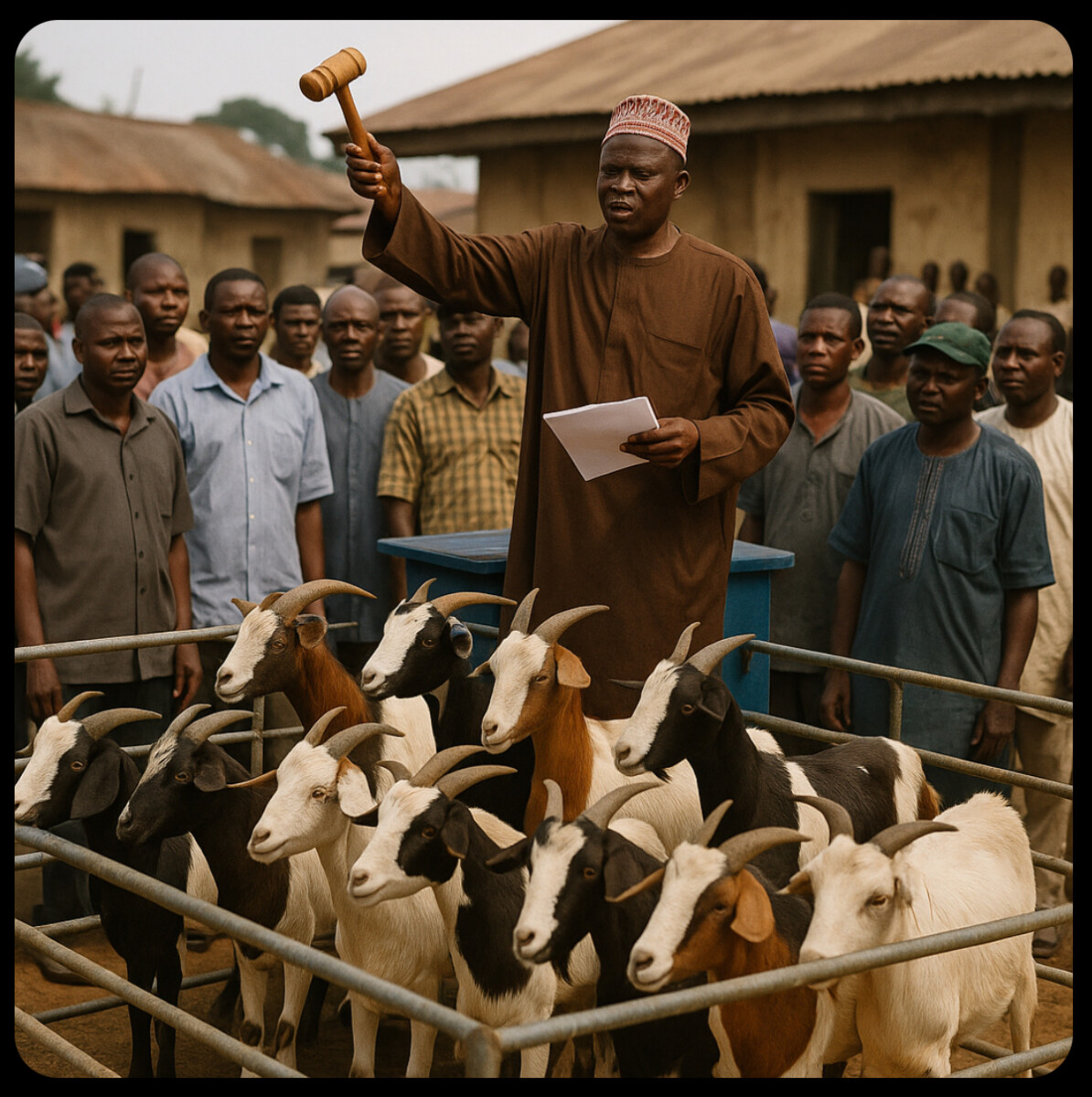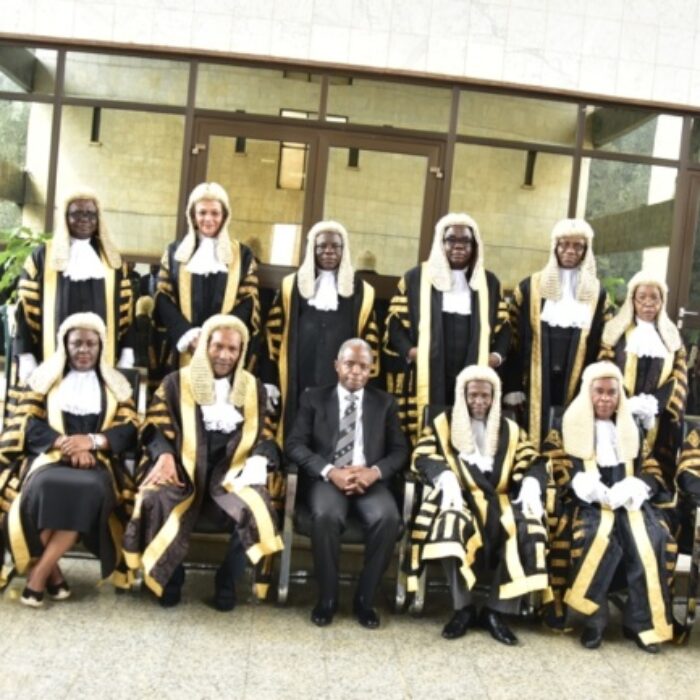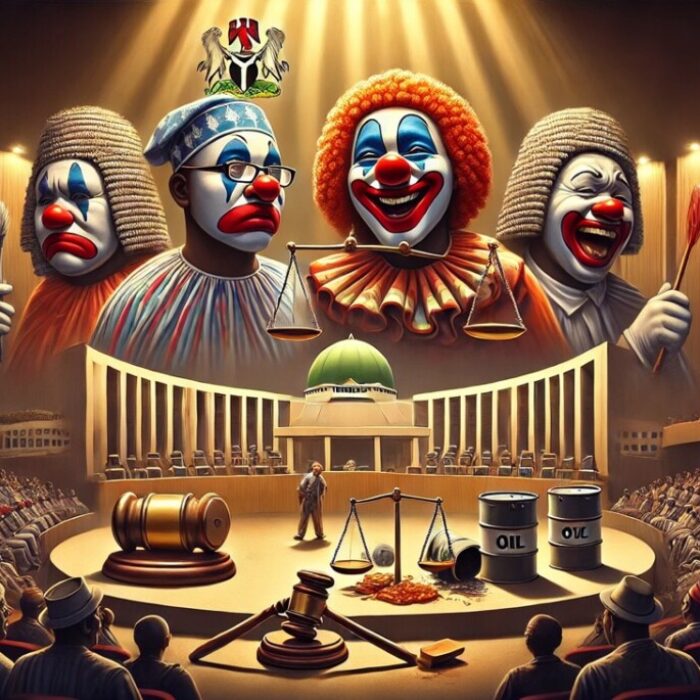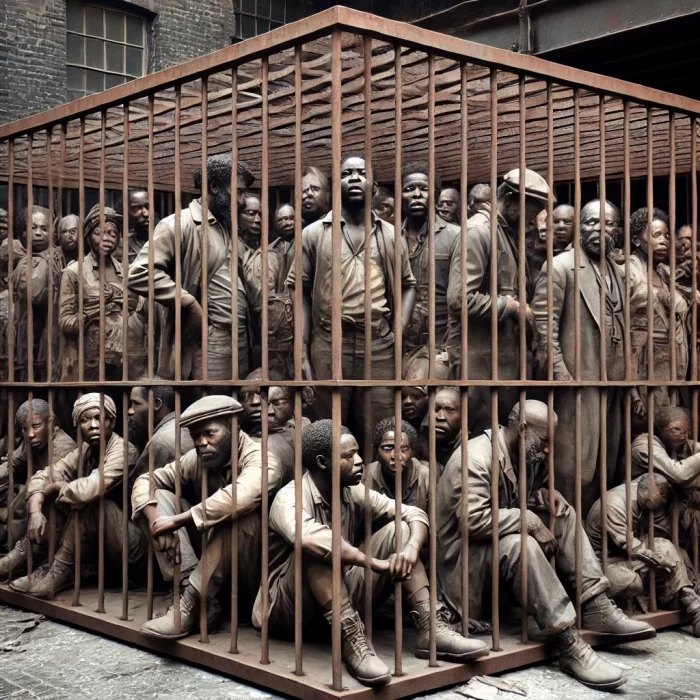By Nnaoke Ufere, Ph.D.
At a cocktail reception in Washington, D.C. this week, a U.S. senator, an acquaintance of longstanding, approached me with a question that, though casually posed, carried the unmistakable weight of genuine concern: “What exactly is happening with the party disintegrations and wave of defections in Nigeria?”
It was a timely question.
Since the inauguration of the 10th National Assembly in 2023, the ruling APC has steadily converted its legislative majority into near-absolute dominance—not through a shared ideology or broad public mandate, but by engineering defections, applying political coercion, employing unrelenting blackmail, and offering inducements to entice politicians to defect.
The APC, once holding 59 Senate seats, has swelled to 66, and the defections keep coming. Observers note that lawmakers from the PDP, NNPP, and Labour Party aren’t switching sides out of conviction, but out of desperation, chasing power, protection from prosecution, and political spoils. It’s not ideology driving them, it’s self-preservation and raw greed.
Among the most prominent defectors is Senator Ned Nwoko of Delta North, who left the PDP. Likewise, Senator Kawu Sumaila of the NNPP and Senator Neda Imasuen of the Labour Party have either defected or are reportedly on the verge of joining the APC.
What once resembled a multiparty Senate is fast becoming a one-color, one-voice chamber of compliance. And this erosion of legislative diversity is not merely procedural, it is the slow suffocation of our democratic soul.
The pattern is equally troubling in the House of Representatives, where opposition lawmakers are defecting in steady waves, lured by promises of political appointments, committee chairmanships, or legal immunity.
Entire state political structures are being absorbed. In Delta State, for instance, Governor Sheriff Oborevwori’s PDP administration has effectively realigned with the APC. Similar moves are reportedly underway in Akwa Ibom, Enugu, and Rivers, where Governors Umo Eno, Peter Mbah, and Siminalayi Fubara are said to be negotiating defections under mounting pressure.
These developments have fueled growing accusations from opposition parties, who allege that President Tinubu is orchestrating a coordinated campaign to dismantle Nigeria’s multiparty system. According to critics, he is employing a mix of inducements, threats of unrest, and the strategic use of emergency powers to unseat elected governments and force them into submission, as seen in the case of Rivers State.
Adding to the alarm, critics further claim that Tinubu is weaponizing state institutions such as the EFCC, reviving or initiating criminal investigations to blackmail governors, senators, and lawmakers into crossing over to the APC. In Abia State, for example, he is reportedly said to have issued a private directive to Orji Uzor Kalu to co-opt the state ahead of a planned 2027 political takeover.
Amid this sweeping consolidation of power, one figure has emerged as a solitary holdout: His Excellency Rabiu Musa Kwankwaso. In the face of sustained pressure, inducements, and propaganda led by the notorious and discredited APC Chairman Abdullahi Ganduje, Kwankwaso has refused to surrender his ideals or the millions who look to him for principled leadership. Kano, a political crown jewel in Tinubu’s 2027 strategy, remains firmly out of reach as long as Kwankwaso holds the line.
His resistance is critical. Kwankwaso is not just resisting a ruling party; he is the last credible barrier standing between Nigeria and the complete collapse of multiparty democracy. If he falls, so too may the final check on the emergence of a one-party, one-man state.
Given this sobering backdrop, the U.S. senator’s question called for more than polite diplomacy. It deserved honesty. And that is exactly what I gave.
“What we’re witnessing,” I began, “is not simply a reshuffling of party affiliations. It is the unraveling of a political system hollowed out by years of elite opportunism, corruption, and the complete abandonment of ideology, integrity, and accountability.
In Nigeria today, political parties no longer serve as vehicles for national vision or platforms for coherent public policy. They have devolved into transactional platforms where power, influence, immunity from prosecution, and access to public funds are the commodities traded by political elites.”
I went on: “What we refer to as political parties are, in reality, corrupt marketplaces. Their primary function is not to articulate ideology or organize governance, but to serve as platforms for personal ambition—stripped of principle, void of accountability, and disconnected from the public interest. This is a fundamental perversion of democratic order.”
And so, we arrive at the heart of the matter. I told him: “These betrayals strike at the very soul of our democracy. At their core, they dismantle the foundations of political accountability and trust. When politicians switch parties at will, party manifestos, ideologies, and campaign promises lose all meaning. As a result, voting becomes little more than an empty ritual—especially when elected officials abandon the platforms on which they were chosen the moment personal gain beckons.
This pattern raises serious questions about the legitimacy of our electoral process. When candidates elected under the banners of PDP, LP, NNPP, or SDP later defect to the APC, the voters are left feeling not just disappointed, but deeply betrayed and powerless. Ultimately, the people are not merely ignored—they are exploited, manipulated, and discarded by the very leaders they trusted with their mandate.
That is why the implications go far beyond party politics. Democracy dies when there is no opposition to hold the APC accountable or to check Mr. Tinubu’s most dangerous impulses. That is exactly what is happening in Nigeria today. As dissent is crushed and power goes unchecked, democracy gives way to authoritarianism. And if this slide continues, it will mark the beginning of Nigeria’s collapse—not just politically, but as a nation.”
The senator nodded, absorbing the weight of what I’d said.
But to truly grasp the crisis unfolding in Nigeria, one must look beyond the surface-level spectacle of defections and understand what distinguishes them from similar occurrences in other democracies.
Party switching, after all, is not unique to Nigeria. It is a familiar feature of many political systems, including mature democracies like the United States. The crucial difference lies in the motivations that drive these shifts. In developed democracies, defections are typically rooted in ideological divergence, substantive policy disagreements, or calculated strategic realignments that still operate within the bounds of institutional norms.
In Nigeria, however, defections are almost entirely transactional. They are driven not by belief or conviction, but by the pursuit of power, patronage and protection. They are acts of political expediency, empty of principle, devoid of policy substance, and fueled by the same short-term logic that has long plagued our national politics.
Of Goats and Defections
To understand the ethos that governs these political defections, one need not turn to political theory or textbooks. A simple visit to the Dei-Dei goat market in Abuja offers all the insight required.
The Dei-Dei goat market is no ordinary marketplace. It serves as a satirical reflection of our political system, a raucous stage for the theatre of the absurd. In this arena, the goats symbolize our politicians—bloated with self-importance, bleating for attention, and switching hands the moment a more lucrative offer presents itself. The traders, representing political parties, flaunt stolen wealth, make grand promises of better goat pens, and most crucially, offer the unspoken assurance of protection from the slaughterhouse, otherwise known as prison.
When deals fall apart, the same shameless goats often return to the pens they once abandoned, bleating with practiced innocence, pretending nothing ever happened. It is a spectacle as comical as it is tragic.
Meanwhile, Nigerian voters watch this sordid performance from the sidelines. They are not treated as meaningful stakeholders, but as voiceless spectators in a transaction that was never intended for their benefit. Worse still, the institutions meant to guarantee fairness, such as INEC and the judiciary, have become indistinguishable from the corruption that pervades the political marketplace, where Judas politicians are traded like goats.
In this climate of unchecked opportunism, Nigerian politicians find their truest reflection. Bought, sold, and shifted from one party to another, they move not as leaders guided by conviction, but as commodities of ambition within a collapsing political order. It is herd mentality in its rawest form—mindless, directionless, and painfully familiar.
To some, this comparison may seem harsh, but it is, regrettably, accurate. Like the goats they so resemble, our politicians are driven not by principle or ideology, but by incentives and personal gain.
The consequences of this crass political mercantilism are far-reaching. It is steadily corroding our democratic institutions, stripping them of their dignity, clarity, and purpose. Bit by bit, we are drifting toward a system dominated by one man and one party, an ominous slide toward authoritarianism.
Politicians May Defect, The People Will Not
But voters are not goats or commodities, and they are not fools. While governors, senators, and members of the House may defect to the APC in pursuit of power or protection, the masses remain grounded in their lived reality. Unlike our politicians, voters do not change allegiance on a whim. They are not appendages to be dragged along in political realignments, nor are they possessions of those they elected.
This growing disconnect from the realities facing ordinary Nigerians reveals a dangerous truth: party defections may tilt the balance of power in Abuja, but they do not put food on the table, create jobs, or make our streets safer. The political drama may dominate headlines, but it offers no relief to those struggling under the weight of inflation, insecurity, and broken promises. The spectacle of politicians switching allegiance for personal gain only deepens public disillusionment, widening the gap between rulers and the ruled.
President Tinubu and the APC would do well to remember that by 2027, it won’t be party machinery or ill-gotten wealth that determines the outcome at the polls. It will be the accumulated pain of hardship, the sting of betrayal, and the shattered illusion of “renewed hope.” The people may appear quiet now, but silence should never be mistaken for forgetfulness. When judgment day arrives, their voices will rise—not with hope, but with the fury of a nation that knows it was deceived.
Therefore, to preserve the sanctity of our votes and the integrity of our democratic mandate, we, the people, cannot afford to remain passive. Citizens must rise in vocal and organized condemnation of any politician who abandons their electoral platform mid-term. Defectors must be socially ostracized, publicly held to account, and denied legitimacy until they return to the ballot box to seek a fresh mandate.
However, public outrage alone is not enough. To salvage what remains of our democratic institutions, urgent legal reform is needed. Any elected official who defects from the party under whose banner they were elected should be compelled to vacate their seat and contest a fresh election under their new affiliation. Anything less is legalized fraud. Democracy cannot thrive where electoral mandates are traded like market goats and where political loyalty is as disposable as a campaign poster. Yet, it is clear that Mr. Tinubu and the APC have no appetite for such accountability.
This contrast becomes even more glaring when we consider India’s experience. Once plagued by similar political instability, India took decisive steps in 1985 by enacting the Anti-Defection Law through the 52nd constitutional amendment. This reform effectively criminalized opportunistic defection and disqualified defectors from holding office, except under strict and narrowly defined conditions. It helped reinforce party discipline and anchored governance in ideology rather than expediency. Again, this won’t happen under Mr. Tinubu.
To my fellow Nigerians and our friends around the world, 2027 must be our last stand. It must be a moment of reckoning for those who betrayed the people’s mandate. Their defections are not mere political maneuvers; they are acts of treachery against democracy itself. We must remember their names, their faces, and their broken promises.
At the ballot box, we must speak not with apathy but with fury. Let every defector know that the people are watching and that the people will remember. If 2023 was the year of deception, then 2027 must be the year of justice.
Defectors must be rejected at the polls. To do anything less is to surrender your voice.




